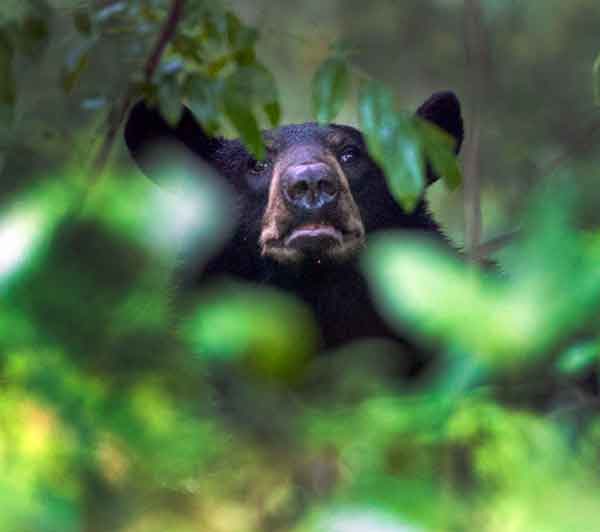The question of whether Maine should return to its roots and traditions as being a state where bear hunting is one of sport and not savagery, will be on the ballot in 2014.
Mainers will have the chance to weigh in on three cruel and unsporting practices that cloud Maine’s wildlife reputation: bear hounding, baiting and trapping.
Chasing terrified bears with packs of GPS-collared dogs, shooting bears feasting on rotting meat and pastries, or letting bears suffer in painful snare traps for up to 24 hours is abhorrent to me and many others.
So, why are these practices allowed in Maine?
A special interest group, representing a minority of Mainers, believes the only way to bring hunters to the lodges and woods of our state is to create, in effect, a “canned hunt.” To virtually guarantee that any hunter, skilled or otherwise, will get their trophy bear.
This group has a loud voice and, I believe, is good at spinning the wheels of misinformation. It has made our state prioritize the wishes of a few over biologically sound science, true sportsmanship and humane treatment of animals.
The Sportsman’s Alliance of Maine is attempting to use fear and misinformation to cloud the facts surrounding bear hunting in Maine and around the United States.
My group, Mainers for Fair Bear Hunting, would like to set the record straight. Here is what SAM doesn’t tell you:
• The prohibition of these practices would still allow for successful bear hunting in Maine. This effort seeks to restore fair-chase principles to bear hunting in Maine by ending the use of GPS-collared dog packs, piles of bait, and cruel snare traps for bear hunting.
• Maine is the only state in the country that allows all three of these practices.
• Only 12 states allow baiting; 14 states prohibit bear hounding; 18 additional states prohibit all bear hunting. Evidence from these states clearly demonstrates that reinstating fair bear hunting and eliminating these cruel, unsporting practices benefits both wildlife and traditional hunting values.
• There is no evidence that prohibiting these practices affects hunting participation and revenue. In Oregon, since bear hounding and baiting were prohibited in 1994, bear tag sales have tripled, revenue from bear tag sales has increased by 214 percent, and nonresident bear tag revenue in the state has doubled, according to data from the Oregon Department of Fish and Wildlife. The states of Washington and Colorado, which also banned hounding and baiting in the 1990s, have seen similar rising trends.
• States that have prohibited baiting and hounding in recent history have seen no significant change in bear “nuisance” complaints, following the ban on such practices.
Proponents of these cruel practices continue to cloud the facts with the bogeymen of outside interests, the evil intentions of people “from away,” the death knell of Maine’s proud hunting heritage and a dire economic impact.
Evidence continues to mount, however, that states that practice more traditional, sportsmanlike practices have stable bear populations, improved bear management and increased bear hunting participation and revenue.
It’s time for Maine to do away with these cruel and inhumane practices. And we’ll have our chance in 2014.
Connie McCabe of Harpswell is a steering committee member for Mainers for Fair Bear Hunting and serves on the board of the Coastal Humane Society.
Send questions/comments to the editors.



Success. Please wait for the page to reload. If the page does not reload within 5 seconds, please refresh the page.
Enter your email and password to access comments.
Hi, to comment on stories you must . This profile is in addition to your subscription and website login.
Already have a commenting profile? .
Invalid username/password.
Please check your email to confirm and complete your registration.
Only subscribers are eligible to post comments. Please subscribe or login first for digital access. Here’s why.
Use the form below to reset your password. When you've submitted your account email, we will send an email with a reset code.